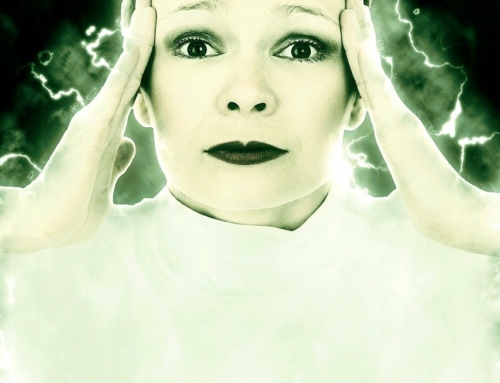I have been shocked at the growing incidence of Alzhemiers and dementia in this county. We all get alarmed when we start forgetting names and can’t recall what we went into the kitchen for so let’s dissect this into the different forms of memory loss.
There are several different types of memory loss that are categorized by the causes to some degree. I think memory loss is a full spectrum of symptoms from very mild changes of not being able to recall a name all the way to not being able to remember your own name and cannot function. Regardless, I always believe that there are underlying imbalances or reasons for these changes that need to be evaluated.
Read on to learn about nine different causes of memory loss and things to think about when starting to address memory loss.
- Hormonal memory loss: when we go thru hormonal shifts we can get accompanying memory loss issues. This is why when women are going thru menopause or men going thru andropause we see more searching for words or things we have misplaced. It is not a sign of dementia but more of a sign our bodies are trying to adapt to a new norm. If there are underlying deficiencies then this can make it even worse. Once the body has adapted to the lower levels of hormones, usually the memory issues level off. If dementia is truly in place then giving women estrogen and men testosterone has been thought to be beneficial.
- Nutrient deficiency memory loss. There are some key brain nutrients that help with memory. The B vitamin family is a major player here with key nutrients being B12 & folate. As we age we naturally start absorbing less B12 and then combine that with any of the antacids or proton pump inhibitors we really have a decline. B12 levels should be above 500 when you test them even though a lower value will be shown as in a “normal” range.
- Food sensitivities: many people don’t realize that if they are eating a food they are sensitive to they may have memory issues. I have witnessed over and over when people eliminate these foods their cognition improves. While any food can cause an issue, if people are sensitive to gluten this one seems to have the most problem. A study looking at children with celiac disease showed 6 months of inflammation of the brain after ONE exposure to gluten. If an older person has been told they have or are developing non-alcoholic fatty liver disease then they really need to consider getting gluten out of their diet because I believe there is a huge correlation with gluten sensitivity and fatty liver disease and ultimately dementia.
- Sleep apnea: untreated sleep apnea can not only cause memory issues but high blood pressure, low hormones, obesity and so many other medical conditions. This is not an overweight only type of disease as I have as many super skinny people with severe sleep apnea. If there is any question about you having sleep apnea, then get it evaluated.
- Traumatic Brain injury: people who have had a loss of consciousness (a concussion) have a higher risk of dementia later in life. This is why there is a lot of research going on right now with concussions in the sports world.
- Drug induced memory issues: many medications that are commonly used can cause significant memory issues either by the action themselves or by depleting key nutrients. Many anti-anxiety and sleep medications come with the risk of memory loss as well as street drugs and marijuana. Excessive alcohol use has also been implicated as a cause. If you are taking any medication long term, it is worthwhile doing an internet search to see if that drug robs you of any key nutrients and then make sure you are taking those nutrients.
- Infections and imbalances: Lymes disease and herpes virus are two examples of infections that can lead to significant memory loss. There are many more. In addition, imbalances like high blood sugar can contribute to memory loss to the point some people are calling Alzheimers.. Type 3 diabetes. Molds and toxins are also getting some attention as causes of memory loss.
- Vascular dementia: this type of memory loss occurs when a person has had small strokes or “ischemic events”. Often the first signs of these are small changes in memory as they don’t have the major symptoms of a stroke. Scans of the brain will show small areas in the brain that have been affected. If this is suspected, then it’s time to go on a hunt for the cause of these. High cholesterol or triglycerides, high inflammation, plaque formation in the carotids can all be a culprit and should be looked at.
- Alzheimers: this is accounting for a significant portion of cases of dementia. Alzheimers is hard to diagnose early on because the symptoms are the same as other causes. Recent advances in Alzheimers research have shown a genetic predisposition. The gene APP (amyloid precursor protein) have been significant in predicting who can develop Alzheimers. If there is a mutation to the APP presenilin 1 gene then that person is virtually guaranteed to developing Alzheimers while the presenilin 2 gen has a 95% chance of developing the disease. Many of the people with these gene variants will develop Alzheimers at a young age (prior to the age 65). The other gene variant that has an Alzheimers link is the Apo E-e4 gene. If you have one copy of the e4 gene then there is a 3 times increased risk of developing Alzheimers and if you have two copies of the e4 gene then there is an eight-to twelve time the risk. Apo E can be easily measured with local labs while the Psen APP tests are specialty tests that are only available thru certain labs. If there is a significant family history of Alzheimers then you have to suspect a genetic variant. Alzheimers can occur without a family history though.
Even with the genetic predisposition, I believe that there are key steps to help preserve as much brain function as possible. First, you really have to dive into other underlying causes and optimize all the systems.
- Balance your hormones
- Make sure your blood sugars are under control. You are aiming for a hemoglobin A1C less than 5.4.
- Optimize your cholesterol and triglycerides.
- Decrease inflammation as much as possible. Goal is hsCRP less than 1.
- Optimize your nutrient levels. Goal of B12level is above 500.
- Exercise
- Do mind games: check out all the apps on your phone. Doing daily mind activity has been shown to improve memory
- Rule out other causes: infections, food sensitivities, mold, toxins
- Evaluate for sleep apnea
- Change your diet. Recent information is showing a keto type of diet that is high in good fats actually helps brain function. Eliminating gluten can be very beneficial. Just read the book Grain Brain by David Perlmutter and you will not look at the gluten the same way!
More and more research is being done to try to identify underlying causes of dementia, thank goodness. Yes, they are also looking at drugs to help slow the symptoms down but for once science has realized that they better be looking for the cause of this significant problem.
If you or someone you love is starting to show signs and symptoms of memory loss then start going thru the checklist to see if there are any underlying causes you can identify and optimize all areas as much as possible.
To your health,
Laura









